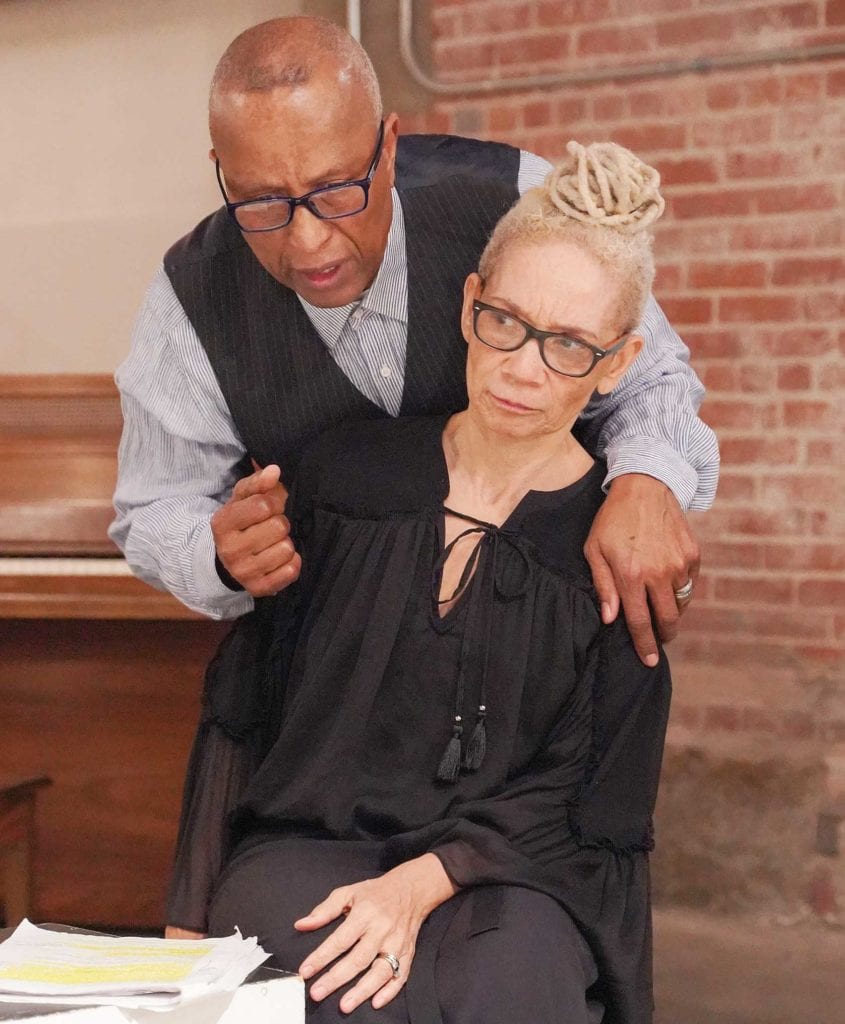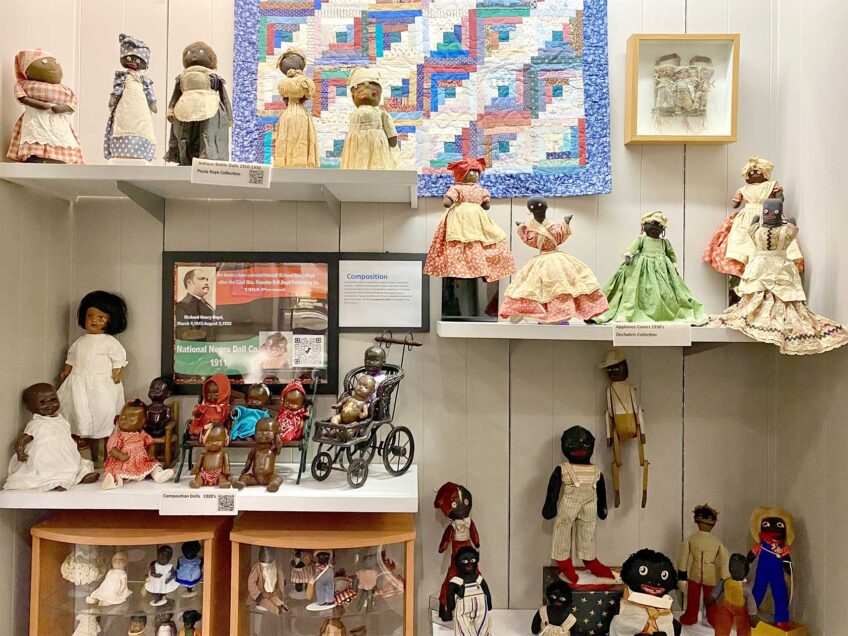‘Long Day’s Journey Into Night’ with all black cast at Hibernian Hall

Eugene O’Neill’s classic play “Long Day’s Journey Into Night” explores the dynamic of a family during the course of 24 hours, revealing that deep familial love can exist simultaneously with addiction and conflict. This month, WaltersWest Project and Fort Point Theatre Channel are shaking up the timeless story by producing it with an all black cast at Hibernian Hall March 17–April 4.
Dayenne Walters, who plays the female lead Mary Tyrone, said she was inspired to tackle the show because she’s always loved the script but doubted that as a black woman she would ever be cast in it. “Once you decide to do it with a black cast then you have to pull it apart. All of the family issues are universal, but what makes this particularly resonant with a black audience and black actors?” says Walters. “I think we’ve been discovering all of that as we go along.”
The production utilizes the original script (with the exception of Irish slurs) and is placed in the original 1912 setting. But the team has brought in movements and music from black culture. Keeping the production true to its original form is part of what makes this all-black version powerful. Here, people of color are being portrayed as an upper-middle class family dealing with their own issues, a side not often shown in media.
“A lot of time I think African American families are seen in two dimensions: either anger or comedy,” says Paul Benford-Bruce, who plays male lead James Tyrone. “In this particular play I want the audience to see we do have the same wants and needs, we do have the same complications, we have the same love, we have the same addictions, and it’s okay to see it on stage.”
Addiction is an important challenge represented in the play. In the nineteenth and early twentieth centuries, opioids were frequently prescribed, and abused, for common medical issues. In the play we see how this leads to addiction and destruction. Alcoholism ran similarly rampant. There may have been less scientific knowledge of these substances at the time, but the addictions depicted in the show are still at large over a century later.
“We’re still in the middle of an opioid crisis and people think that this is a new thing,” says Walters. “It’s actually been a cycle of opioids being mis-prescribed and used incorrectly.” These challenges, and the universal family dynamics, link the play to present day. The show also serves to bring to light issues like addiction that are often not discussed in communities of color.
On March 12, the cast and crew of the show will host an open rehearsal and talkback about the production at Hibernian Hall. Sponsored by a City of Boston Opportunity Grant, the panel discussion “Bringing an African American Perspective to Long Day’s Journey Into Night” will delve into the rewards and implications of remixing this classic play.
Walters and Benford-Bruce hope the production sparks conversation about the issues that plague the Tyrone family and about representation on stage. “I want people to look at black actors in a black play and say ‘yes, this is okay for us to do,’” says Benford-Bruce. “We as blacks have the same emotions, we’re just a different color.”




![Banner [Virtual] Art Gallery](https://baystatebanner.com/wp-content/uploads/2024/04/Cagen-Luse_Men-at-store-e1713991226112-150x150.jpg)

![Banner [Virtual] Art Gallery](https://baystatebanner.com/wp-content/uploads/2024/04/Cagen-Luse_Men-at-store-e1713991226112-848x569.jpg)

